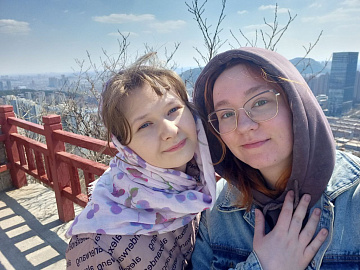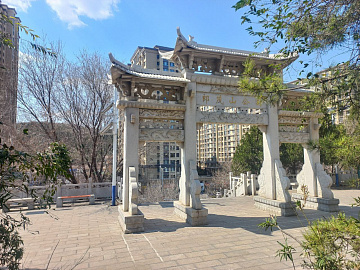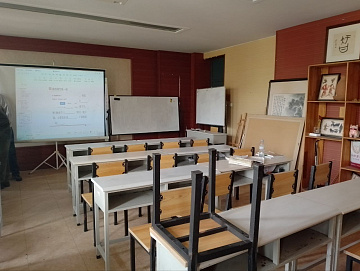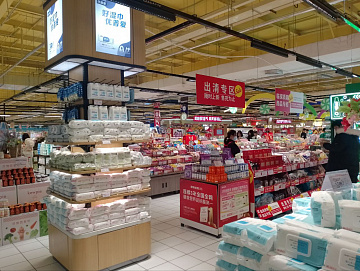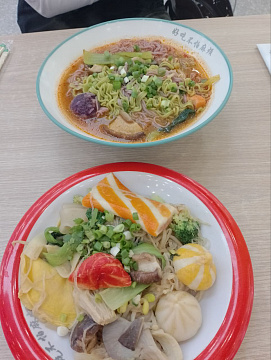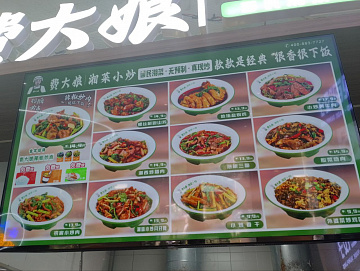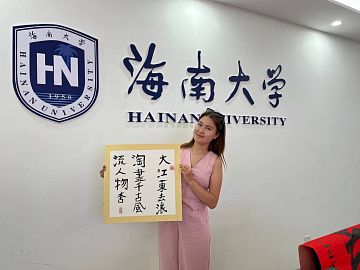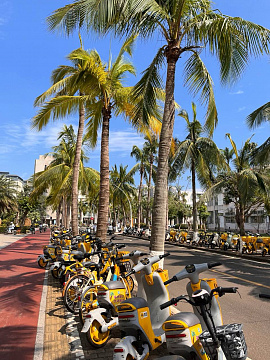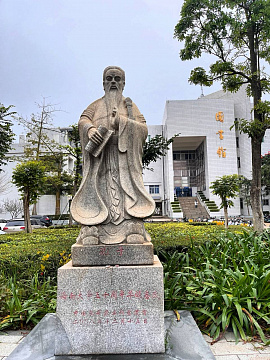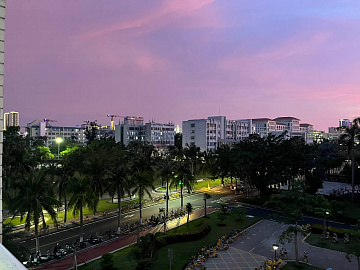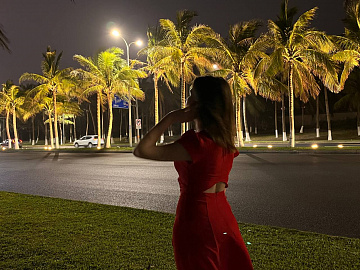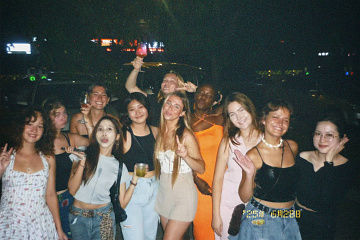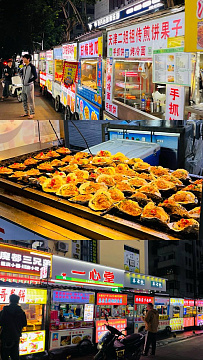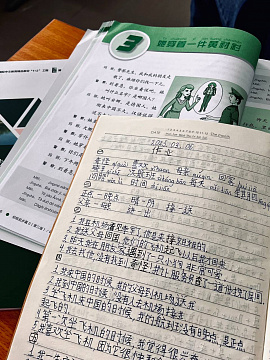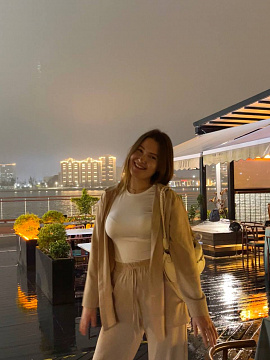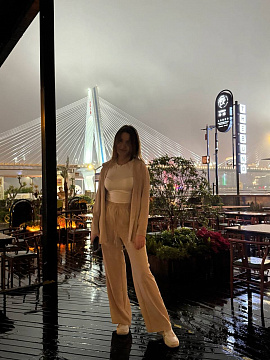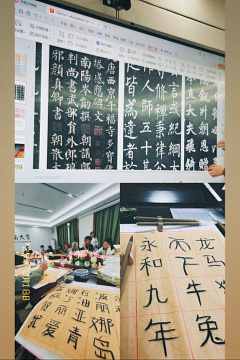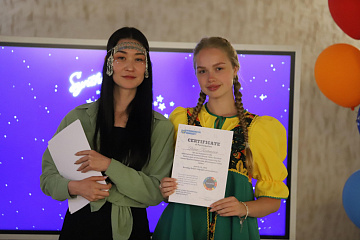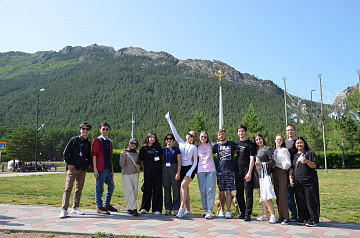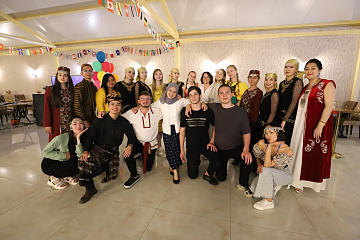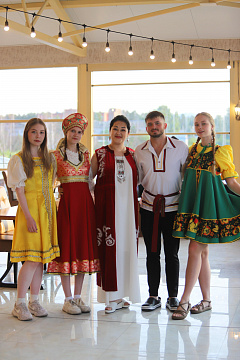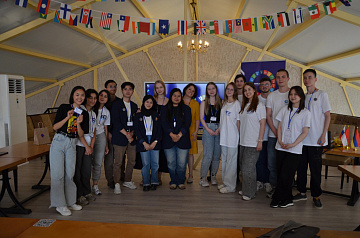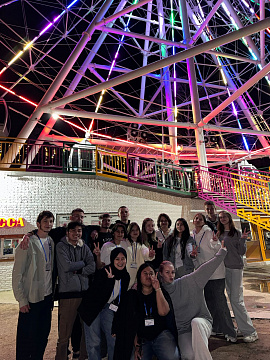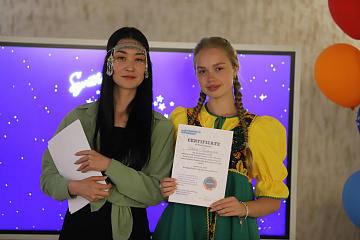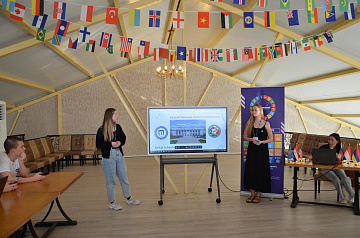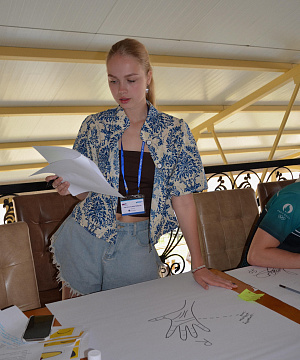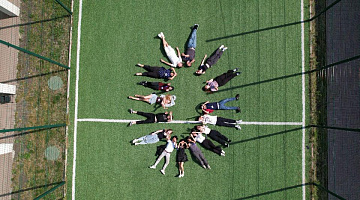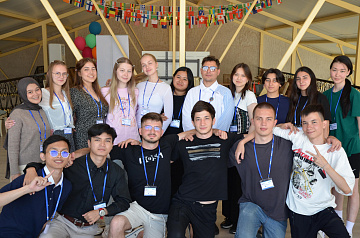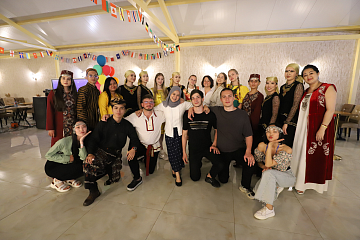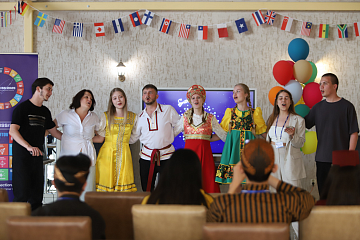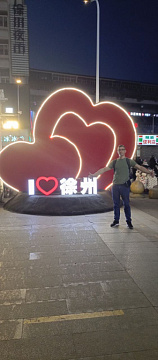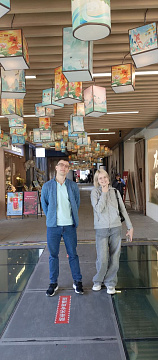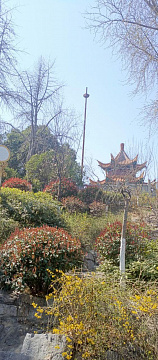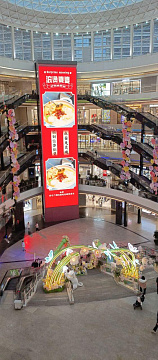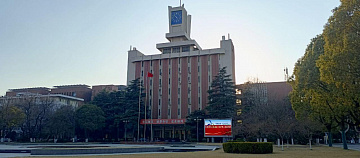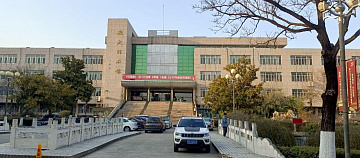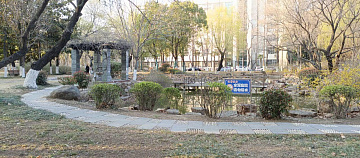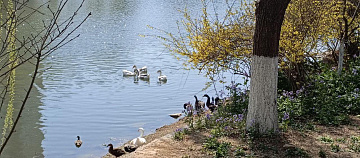
I really enjoyed the internship. Traveling to another country definitely broadens your horizons – it was extremely informative and interesting. During my time studying, I managed to go from HSK level 1 to HSK level 2. The communication skills I developed during this internship proved to be really useful. In terms of academics, I significantly improved my knowledge of the Chinese language.
What difficulties did you have at the stages of preparation for the internship? What tips and recommendations can you give to future participants of the academic mobility program?
During the preparation stages for the internship, it was necessary to fill out a visa application, undergo a medical examination (which also involved a large number of documents), and other exhausting paperwork procedures. The required documents needed to be ready within a very tight timeframe, which was a real problem and a major cause for concern. To future participants of the academic mobility program, I advise gathering all certificates and documents as early as possible to avoid significant delays before departing for the internship.
Describe the process of obtaining a visa. Your advice for future participants of the academic mobility program.
First, you fill out an online application, which you then need to bring to the embassy. After some time, and after paying the fee, the visa will be stamped in your passport. To future participants of the academic mobility program, I can advise not to be afraid to look for tips on how to correctly fill out the online application on the internet – there are several resources that greatly simplify this process.
What difficulties did you encounter upon arrival at the host foreign organization? Your advice to future participants of the academic mobility program.
Before arriving, my classmates and I didn’t properly research the climate and temperatures in the host city, which led to us packing a huge amount of unnecessary, out-of-season clothing. To future participants of the academic mobility program, I advise checking the weather forecast in advance for the duration of your stay in a particular place.
Specify your expenses related to participation in an internship abroad (visa costs, cost of flight / travel to the place of internship, registration fees / taxes / deposits in the host organization, policy / medical services, if used, public transport, meals, accommodation. Your tips for cutting costs.
Single-entry visa cost: 2500 rubles
Round-trip plane tickets: no more than 40,000 rubles in total
Train ticket on the Beijing-Jinan route: around 2000 rubles
Dormitory for the entire semester (4 months): 60,000+ rubles
Medical insurance for the semester: 4000+ rubles
Bus fare: no more than 30 rubles
On average, you can pay from 100 to 190 rubles for a serving of soup/rice/noodles in the university cafeteria.
To reduce expenses, I can advise using online marketplaces and learning specific vocabulary to ask for food to be wrapped up in restaurants to take away and eat later, instead of throwing it away.

My internship was both vibrant and productive! The language courses helped me significantly improve my Chinese, overcome the language barrier, and reach HSK 4 in a short time. The class schedule was well-organized, and the teachers were attentive and supportive throughout the program. The campus is located by the sea—from my dorm window, I could see the ocean and one of the main landmarks, the Haikou Bridge. The single room was very comfortable—spacious, with a private bathroom and a large balcony featuring a kitchenette (sink and power outlets). Unlike many dorms, there were no restrictions on appliances. The campus had numerous canteens serving delicious Chinese and international cuisine, as well as shopping malls, stores, a post office, and ATMs. Hainan amazed me with its beauty—a true tropical paradise! The trip also allowed me to make friends from around the world. We studied together, explored the island, and practiced English. I truly hope INRTU and Hainan University continue their collaboration—it’s an incredible opportunity for students to gain knowledge while enjoying such a picturesque location!
What difficulties did you have at the stages of preparation for the internship? What tips and recommendations can you give to future participants of the academic mobility program?
Since this was my second internship, I faced no major challenges. I prepared in advance by getting a Union Pay card (Rosselkhozbank) and withdrew yuan easily from any ATM. Upon arrival, I immediately opened an ICBC bank card.
Describe the process of obtaining a visa. Your advice for future participants of the academic mobility program.
The process was straightforward: minimal documents, filling out an application, and submitting it at the embassy. No issues arose
What difficulties did you encounter upon arrival at the host foreign organization? Your advice to future participants of the academic mobility program.
Hainan University was very welcoming. INRTU international office helped me connect with coordinators who provided guidance. International students assisted with dorm check-in and adaptation, while the international office was highly efficient.
Specify your expenses related to participation in an internship abroad (visa costs, cost of flight / travel to the place of internship, registration fees / taxes / deposits in the host organization, policy / medical services, if used, public transport, meals, accommodation. Your tips for cutting costs.
The expenses and organizational fees turned out to be less than I expected. The visa cost 2,500 rubles. Plane tickets to Beijing are 16,000 rubles there, and back for 10,000 rubles. The Beijing-Haikou plane is about 10,000 rubles. A single dormitory cost 3,200 yuan per semester. Insurance – 400 yuan per semester. There was not even a deposit and no non-refundable contributions. You can eat delicious and profitable meals in the dining room for 15-20 yuan at a time. At the university, you can rent a scooter to travel around the campus for 3 yuan per hour. It is also convenient to rent a bike in the city, the climate and infrastructure make it convenient to move around. They also spent money on laundry in the dormitory – only 0.6 yuan at a time. On average, it took 2,500 yuan per month to live comfortably.

The internship in Kazakhstan was an exceptionally positive experience. The SDG's ISS/2025 forum combined academic intensity, practical training, and cultural exchange. I especially remember the team games, the SDG sessions, and the excursion to Borovoe, which allowed me not only to deepen my knowledge but also to get to know the nature and traditions of Kazakhstan.
- I have established contacts with representatives of 5 universities for future projects.
- I have gained new skills in the fields of art therapy and climate education, which I plan to use in my life.
- I have improved my public speaking skills.
Benefits in academic and personal terms:
I have gained a better understanding of SDG methodologies, which will help me in my future projects.
I have become more confident in an international environment, and I have learned to work effectively in a multicultural team.
What difficulties did you encounter during the preparation stages for your internship? What advice and recommendations can you provide to future participants in the academic mobility program?
I did not encounter any major difficulties. Advice: Bring cash, as there is no option to withdraw money from an ATM.
Describe the process of obtaining a visa. Provide your advice to future participants in the academic mobility program.
A visa to Kazakhstan is not required, and you can fly with a Russian passport.
What difficulties did you encounter upon arrival at the host organization abroad? Your advice to future participants of the academic mobility program.
1. Install offline maps - 2GIS
2. Buy a basic sim card of Tele 2, and you will be in touch.
Specify your expenses related to participation in a foreign internship (visa costs, the cost of flight/travel to the place of internship, registration fees/taxes/deposits at the host organization, policy/medical services, if used, travel by public transport, meals, accommodation. Your tips on reducing expenses.
1. Install offline maps - 2GIS
2. buy a basic sim card of Tele 2, and you will be in touch.

What are your impressions of the internship in general? What results have you managed to achieve? How did this internship prove useful for you, how did it affect you in academic and personal terms?
I liked everything very much: the natural sights of Kazakhstan and people. This internship allowed me to get acquainted with the cultural peculiarities of not only this country, but also Indonesia and Armenia. At this forum, it was possible to study in more detail some of the UN Sustainable Development Goals, namely those related to health and well-being, global partnerships and the environment. The usefulness of this internship is reflected in the opportunity to learn about the culture of new countries for me and make useful acquaintances for the future.
What difficulties did you have at the stages of preparation for the internship? What tips and recommendations can you give to future participants of the academic mobility program?
There were no difficulties: the hosts answered all questions that arose and even continuously asked if everything was going well in preparation for the forum. The only advice I can give to future participants is to study the topic of the internship they are going to take part in, so that integration into the process is easier and faster.
Describe the process of obtaining a visa. Your advice for future participants of the academic mobility program.
You don't need a visa or even an international passport to go to Kazakhstan. I traveled there with a Russian passport without any problems. My advice is to carefully study the visa regulations of the host country and what documents are needed.
What difficulties did you encounter upon arrival at the host foreign organization? Your advice to future participants of the academic mobility program.
I encountered no difficulties: we were met at the airport and taken to the venue of the forum. Advice: if there are any issues regarding the time of your arrival and the time of the transfer offered by the host party, do not be afraid to contact the host organization. Most likely, they will help to solve the problem. We were provided with a transfer a day earlier so that we would not look for an accommodation place.
Specify your expenses related to participation in an internship abroad (visa costs, cost of flight / travel to the place of internship, registration fees / taxes / deposits in the host organization, policy / medical services, if used, public transport, meals, accommodation.
For a ticket from Irkutsk to Astana and back – 34106 rubles. Since the bus fee is mostly paid by card, we used taxi and paid in cash. Taxi services are much cheaper than in Russia – on average, we paid about 200 rubles for a trip. The food is also very affordable, and you can easily order a lunch in many cafes for about 400 rubles. In total, for 8 days of stay in Kazakhstan, about 23 thousand rubles were spent on personal expenses + travel + food + gifts and souvenirs to friends and family. The most important advice when traveling to Kazakhstan at the moment is to bring enough cash, since neither UnionPay cards nor VTB MIR cards work there mostly. Money can be exchanged at the exchangers at the airport upon arrival or at the exchange offices in the city without any problems.

This March I took part in the 2025 Chinese Culture Workshop for Russian Youth hosted by Jiangsu Normal University
What are your impressions of the internship in general? What results have you managed to achieve? How did this internship prove useful for you, how did it affect you in academic and personal terms?
My impressions are good, the trip helped me to form my attitude to the country, to understand what aspects of the language need to be improved first of all. There is no point in talking about the results, as the internship was short-term.
What difficulties did you have at the stages of preparation for the internship? What tips and recommendations can you give to future participants of the academic mobility program?
It should be very clear to both organizers and trainees what level of language is needed directly in the process of training. In our case, our level was barely half of what was needed (ours=about 2 HSK, taught=4 HSK). This was an unpleasant surprise. On the mundane side of the journey, having internet on my phone, with all the necessary resources for communication, helped with most of the difficulties. My advice is to understand clearly where you are going and why, to believe in yourself, not to be afraid of new things, to be open to people and to think three times before doing something.
Describe the process of obtaining a visa. Your advice for future participants of the academic mobility program.
Obtaining a visa in our case, thanks to an invitation from a Chinese partner university, was quick and painless. The process is as simple as possible, and it requires that all the simple steps are followed precisely. It is better to plan and do everything in advance.
What difficulties did you encounter upon arrival at the host foreign organization? Your advice to future participants of the academic mobility program.
In our case, the main difficulty was the lack of the necessary language level. There are no questions about the host party - all the staff and teachers were as friendly and welcoming as possible, helping in all matters. Also we were provided with supervisors - Russian-speaking students of the university, which helped us a lot in solving all arising issues. Accommodation and meals were organized perfectly, the cultural program was rich and interesting. In general, Xuzhou is an excellent place, optimal in terms of value for money, the standard of living and climate are comfortable, and the cost of living is low.
Specify your expenses related to participation in an internship abroad (visa costs, cost of flight / travel to the place of internship, registration fees / taxes / deposits in the host organization, policy / medical services, if used, public transport, meals, accommodation. Your tips for cutting costs.
35000 rubles - round-trip plane tickets to Beijing, 9000 rubles - train tickets to Xuzhou, 7000 rubles - expedited visa, 80000 rubles - accommodation, meals and cultural program on site, medical insurance - 3000 rubles.
Tip - use payment systems like Alipay, it is convenient and safe. In my opinion, Alipay and WeChat are a must in China. Trip.com will help with train tickets and hotels.

